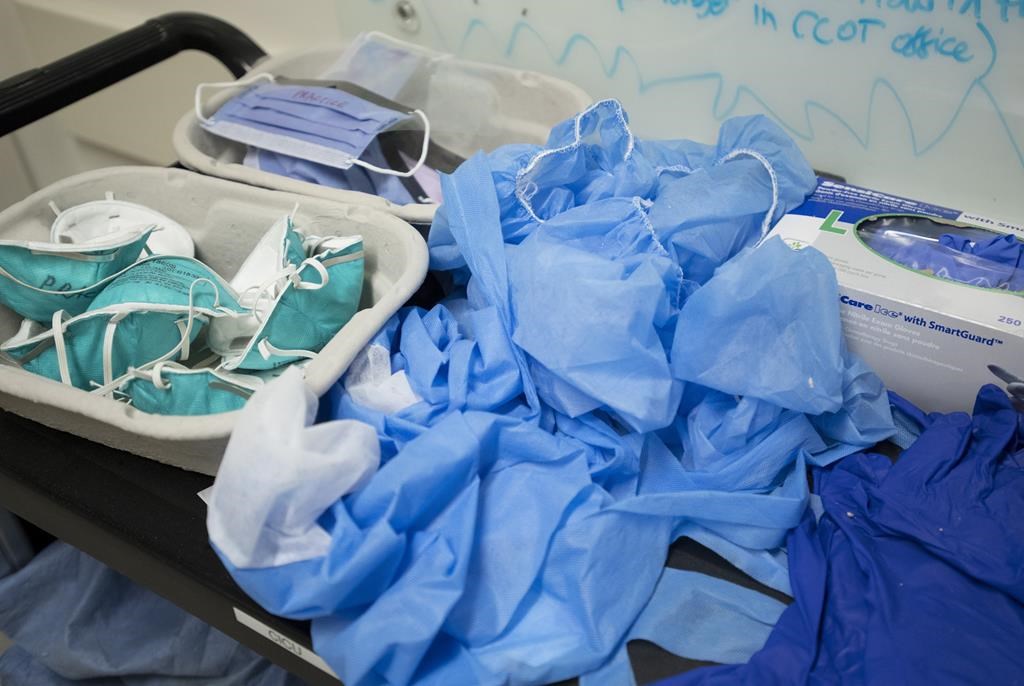OTTAWA — Canadian companies that answered the government’s call to produce ventilators and other desperately needed equipment during the COVID-19 pandemic say they’re worried that opposition MPs are now demanding disclosure of the contracts they signed with Ottawa.

And they’re warning they’ll be less likely to step up in the future if they can’t trust the government to keep sensitive business information confidential.
Their concern is sparked by a sweeping Conservative motion that would order the government to turn over to the House of Commons health committee all records on a raft of issues related to the government’s handling of the pandemic — including the purchase of personal protective equipment and testing products.
The motion is poised to pass in a Commons vote Monday, with the support of the Bloc Quebecois and NDP.
“We are very concerned with the risk of proprietary, sensitive or confidential business information suddenly being disclosed to the public,” Canadian Manufacturers and Exporters president Dennis Darby says in a letter Friday to Procurement Minister Anita Anand.
“If these disclosures are too broad, it will negatively impact business operations for manufacturers in Canada and around the globe. Furthermore, we worry that the reputations of many manufacturers ? will be unfairly tarnished.”
Darby says companies sold “desperately needed goods” to the government “on the assumption that any shared sensitive business information would be kept confidential.” The push to disclose it now could do “irreparable harm” to their reputation and to Canada’s reputation as a good place to do business, he warns.
“Simply put, if companies cannot trust that their information will be kept confidential, a chill will set in on private enterprise seeking out government procurement contracts generally. We must avoid this scenario at all costs.”

The letter, obtained by The Canadian Press, was copied to two other ministers, as well as to the author of the motion, Conservative MP Michelle Rempel Garner, and several other Conservative and New Democrat MPs.
Darby says nearly 25 per cent of his group’s 90,000-member companies retooled their operations to produce PPE in the midst of the ongoing health crisis.

Get weekly health news
“Without doubt, those sudden ramp-up costs are significantly higher than a manufacturer who had been producing those same products for years,” he writes. “We do not think their intensions (sic) should be called into question.”
In a separate letter to opposition party leaders and the government House leader, the co-chair of the COVID-19 Vaccine Task Force also expresses concern that the motion demands all records related to the task force’s advice to the government on potential vaccine candidates.
Joanne Langley says to do its work, the task force has entered into confidentiality and non-disclosure agreements with Canadian and international vaccine companies.
“Indeed, without this guarantee of commercial confidentiality, it would not have been possible for us to meaningful (sic) exchange with these firms nor to obtain the data needed to make evidence-based, informed recommendations,” she writes.
Langley offers to meet with a small group of MPs to brief them on the task force’s work, provided that the MPs are also subject to the same confidentiality promises.
Flavio Volpe, head of the Automotive Parts Manufacturers’ Association, said that 25 auto parts companies have retooled to produce PPE during the pandemic.
He said he has no concerns about disclosing their contracts but is worried that doing so in a highly politicized environment will turn the companies into political “footballs.”
“Nobody signed up to be a football,” he said in an interview.

Volpe warned that some companies “may not feel the same sense of call to action next time because now we’re part of something that is political rather than doing our civic duty.”
The government has used a national security exemption to keep procurement contracts secret, arguing that the intense global competition for PPE makes it prudent to protect the names of suppliers of items that are particularly hard to come by, such as N95 respirators, gloves and swabs.
A national security exemption also allows the government to purchase supplies more quickly.
The Conservative motion makes some allowance for national security concerns, stipulating that any redactions to the demanded documents be made only by the parliamentary law clerk and only for national security or personal privacy reasons.
However, the government is concerned that the law clerk does not have the expertise to determine what constitutes commercially sensitive information.








Comments